Featured Articles
Introducing Security Sunday! This is a weekly segment aiming to highlight important stories and changing dynamics in international security. Browse articles and resources on gender and international security curated by our Exec team!
Featured Article
24th February to 2nd March 2025

In the last week, we have seen much disagreement and confrontation between the US and its Western partners, including Ukraine, regarding the fate and resolution of the Russia-Ukraine war. Clashes have been observed at the institutional level at both the UN and G7, with the US siding with Russia in UN resolutions over Ukraine. President Trump has in the last few days met with a series of European heads of state to discuss the war, among which President Zelensky.
The exchange between the two turned heated, with Trump throwing statements such as “you are gambling with World War III” and “You don’t have the cards right now”. The meeting did not result in the signing of the US-Ukraine minerals deal. Since the exchange, European leaders have shown their support to Zelensky, with some countries like France pushing for a ceasefire deal. Zelensky has rejected calls for Ukraine to agree an immediate ceasefire in its war with Russia, saying it would be “failure for everyone” if a cessation of hostilities were not accompanied by detailed security guarantees.
In parallel to this, Israel has halted all humanitarian aid to Gaza after militant group Hamas rejected a revised proposal to extend the ceasefire that lapsed early on Sunday and condemned the latest plan as “manipulation”. Concern is rising that the fighting that reduced Gaza to rubble, killed tens of thousands of Palestinians and threatened the lives of hostages could resume.
Continuing on our coverage of the DRC crisis, the UK announced punitive measures against Rwanda in response to the conflict in eastern DRC. They said the measures would remain in force until there was significant progress in ending hostilities and a withdrawal of all Rwandan soldiers from Congolese territory. Rwanda reacted by saying that international sanctions would reduce the likelihood of peace with M23 rebels. Meanwhile, the humanitarian crisis that has resulted from the fighting is worsening.
As we approach a third year of the Sudan war, the UN envoy for the country emphasized the need to re-double and coordinate efforts towards a peace agreement. The humanitarian crisis resulting from the fighting is only worsening, especially as US humanitarian assistance has been frozen, forcing the closure of almost 80% of the emergency food kitchens set up to help people left destitute by Sudan’s civil war.
Lastly, turning our attention to Myanmar. UN High Commissioner for Human Rights Volker Türk recently described conditions in the country as “a litany of human suffering.” He detailed the devastating toll of the ongoing conflict and economic collapse on civilians – many of whom have been displaced by the fighting.
Links to read more:
Russia-Ukraine situation: https://www.ft.com/content/6d78e821-1e53-492e-9018-b4e85410ccd1 & https://www.ft.com/content/40f6291c-83e1-4f0d-996f-34ed09eca175
Zelensky: https://www.ft.com/content/24357fd3-a839-4865-847f-c258933b159f
Israel-Gaza: https://www.nytimes.com/2025/03/03/world/middleeast/israel-hamas-cease-fire-assess.html & https://www.aljazeera.com/news/2025/3/2/israel-reneges-on-ceasefire-deal-warns-hamas-of-consequences
Sanctions Rwanda: https://www.ft.com/content/9b5abdb9-54b0-41b4-ab13-d3a714cff7d5 & https://www.aljazeera.com/news/2025/2/26/rwanda-slams-uk-sanctions-over-dr-congo-violence
Sudan: https://news.un.org/en/story/2025/02/1160531
Myanmar: https://news.un.org/en/story/2025/01/1159641
17th to 23rd February 2025
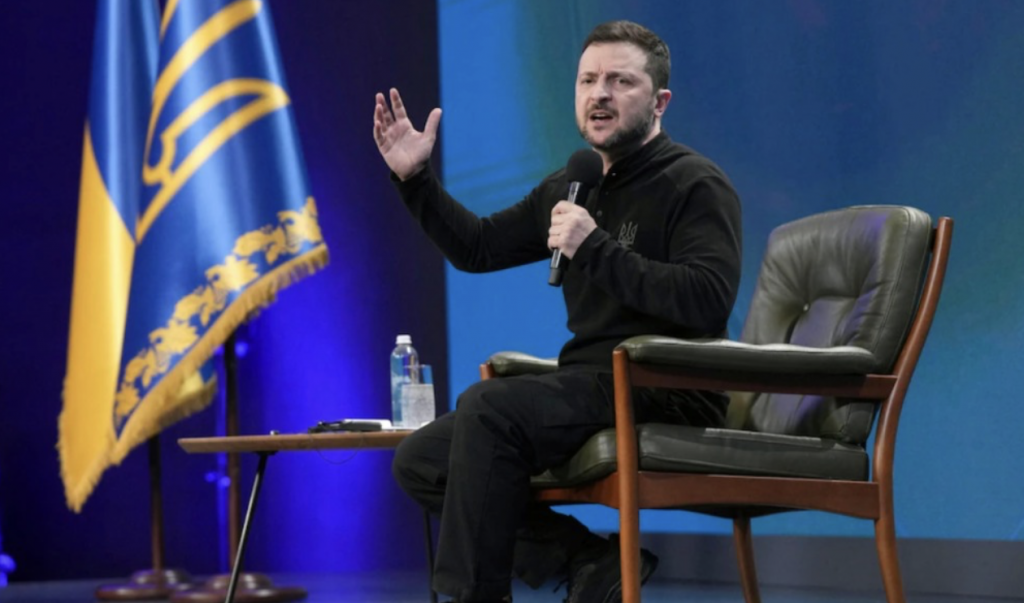
Welcome back to another Security Sunday!
For this week’s Security Sunday, we are exploring some of the key events over the past week!
Russia launched 267 drones overnight, its largest attack yet, killing at least three. Zelenskyy offered to step down if it guarantees peace and NATO membership for Ukraine. Meanwhile, Trump re-engages with Moscow and seeks access to Ukraine’s rare earth minerals in exchange for continued U.S. support.
Hamas freed six hostages, but Israel delayed releasing 620 Palestinian prisoners, citing concerns over Hamas’s public handovers. The ceasefire remains fragile, and talks for a second phase have stalled.
In the DRC, the UN condemned M23’s rebel advance, demanding Rwanda withdraw from Congo. M23 has seized major cities, forcing thousands to flee to Burundi. The UK and UN condemn Rwanda’s involvement, while diplomacy remains stalled.
In Colombia, 80,000+ are displaced as ELN and FARC rebels fight for control of coca-growing regions. President Petro declared a state of emergency, ending peace talks. The UN allocated $3.8M in aid as violence escalates.
Links to read more:
1. Russia–Ukraine
2. Hamas & Israel:
4. DR Congo
5. Colombia
12th to 16th February 2025

Welcome back to another Security Sunday!
In Sudan, the civil war between the Sudanese Armed Forces and the Rapid Support Forces has created a severe humanitarian crisis, with 30 million people in need of aid, widespread displacement, and rising violence, particularly affecting women and children. Funding shortfalls continue to hamper relief efforts.
In the DRC, Rebel advances from Goma to Bukavu have cut off humanitarian routes, displacing 350,000 people and leaving many without shelter or healthcare. The spread of diseases like cholera and mpox is worsening, as insecurity prevents aid deliveries and disrupts healthcare services.
U.S.-Russia peace talks, excluding Ukraine and European allies, have heightened concerns about potential concessions and regional stability. NATO unity is strained, with fears of U.S. troop withdrawals and growing Russian influence over Ukraine’s future.
The Gaza ceasefire has enabled some humanitarian access, but essential repairs and commercial trade are needed for long-term recovery. Thousands remain displaced, and aid organizations stress the importance of maintaining the truce for ongoing relief efforts.
A strike at the Chernobyl nuclear site caused a fire but no radiation leak. Russia denies responsibility. The incident highlights ongoing nuclear safety risks during the Ukraine conflict, with the IAEA urging maximum military restraint around nuclear facilities.
Links to read more:
1. Sudan
2. DRC
4. Russia & Ukraine
5. Israel–Palestine
6. Chernobyl Strike
03rd to 09th February 2025
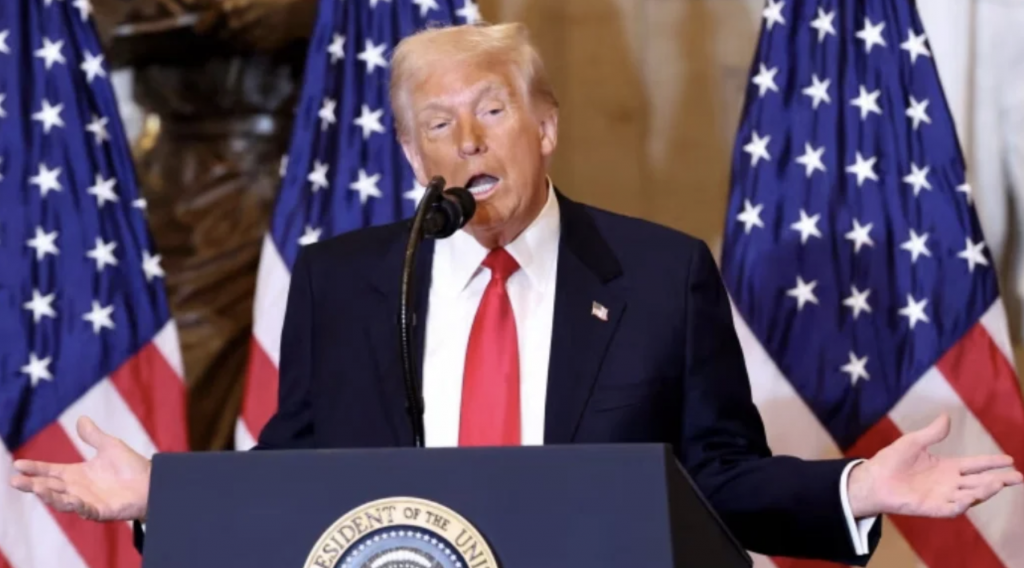
For this week’s Security Sunday, we are exploring some of the key events over the past week!
President Trump continues to have a significant impact on international security. During a press conference alongside Netanyahu, President Trump announced his intention to take control of Gaza and forcibly relocate Palestinians to neighbouring countries like Egypt and Jordan. His vision? To rebuild and “redevelop” Gaza into what he called the “Riviera of the Middle East”. His announcement was met with much resistance from the EU and neighbouring countries.
In parallel to this, a few days later, following an executive order, Trump slapped sanctions against the International Criminal Court, claiming it to be illegitimate and of abusing its power -particularly by attacking the US and its allies.
One day before they were meant to come into effect, tariffs against Canada and Mexico were paused for 30 days. This came following separate bilateral calls with the leaders of each country who committed to a series of measures to meet some of Trump’s demands.
At a summit in Tanzania meant to discuss the current fighting in the DRC, several regional leaders called for an immediate and unconditional ceasefire as the Rwanda-backed M23 continues with its offensive.
The ongoing crisis in Sudan is expected to worsen if the fighting continues, with more people expected to be left without access to vital aid, human suffering to deepen, and more lives to be lost.
A recent report published by the UN underlines the alarming human rights situation in Haiti as the number of deaths and wounded continues to reach high numbers due to increasing gang violence in the country.
Links to read more:
1. Trump & Gaza
2. Trump & Tariffs
3. ICC sanctions
4. DRC
5. Sudan
6. Haiti
27th January to 02nd February 2025
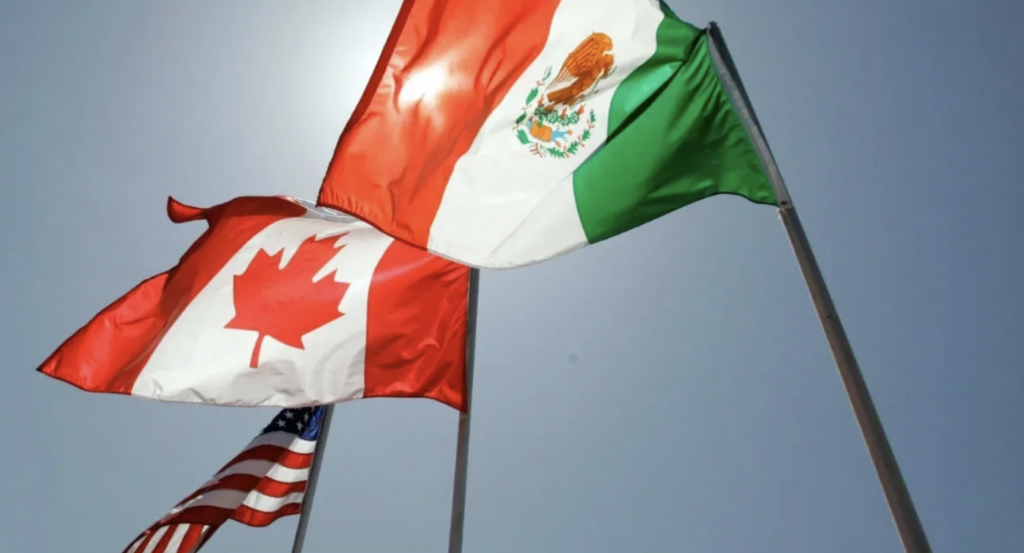
Welcome to this week’s Security Sunday
Over the past week, the situation in the DRC quickly escalated as the Rwanda-backed M23 seized Goma, the largest city in eastern DRC. The latest fighting has forced many to flee and threatens to deepen an already dire humanitarian crisis. Tensions between Rwanda and the DRC are increasing, and the risk of a regional war erupting is high. M23 has announced its intention to continue its offensive to other parts of the region.
A ban on UNRWA recently came into effect in Israel, raising questions about the future of the agency’s efforts in providing life-saving aid in the region. Despite the ban, UNRWA announced that it would continue with its work.
Donald Trump launched a trade war when he announced that starting February 4th, Canada and Mexico would receive a 25% tariff, while China would receive an additional 10%. In reaction to these measures, Canada, Mexico, and China responded, with Canada announcing a reciprocal 25% tariff. While Donald Trump has not yet imposed tariffs on the EU, he has made it clear that they “will definitely happen” soon.
In addition to his tariffs, Trump’s executive orders included a 90-day pause on foreign aid, shutting down several lifesaving health initiatives and medical research projects around the world. Thousands of people have already lost their jobs as a result of the freeze.
Pressure is building on Myanmar’s military regime to hold national elections that opposition forces have promised to disrupt. The UN Secretary-General said Myanmar’s military must relinquish power to allow a return to civilian rule through an inclusive democratic transition, as the country marks four years since the junta seized power.
Links to read more:
1. Trump & tariffs
2. Trump & Aid
3. DRC
4. Myanmar
5. UNRWA
20th to 26th January 2025
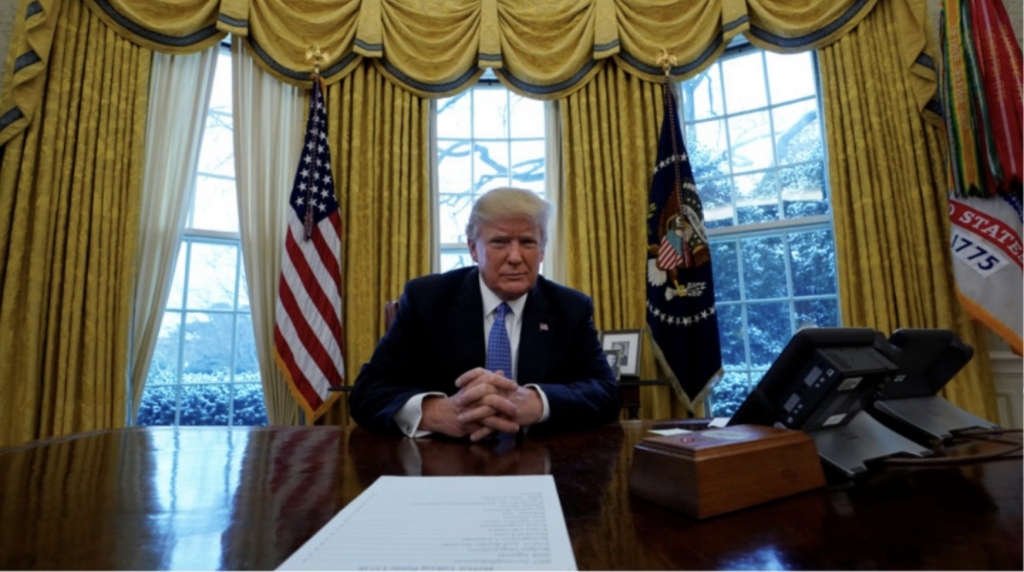
For this week’s Security Sunday, we are looking at the US, the Middle East, Myanmar, and DR Congo.
Trump’s tenure in office dramatically shifted global dynamics from controversial claims over Greenland’s sovereignty to stirring discussions about the Panama Canal and Canada’s territorial rights. His administration’s attempts to assert control over these regions stirred debates over the balance of power, international diplomacy, and the importance of preserving national borders.
A fragile ceasefire has been implemented, affecting Israel, Gaza, the West Bank, and Lebanon, bringing a glimmer of hope to regions long marred by conflict. While the pause in violence offers temporary relief, true peace remains distant, as Israel has not fully retracted its forces from occupied areas. This incomplete pullback raises questions about the long-term stability of the ceasefire and whether an actual resolution is possible.
The Myanmar crisis has become one of the world’s most pressing humanitarian disasters, with ongoing violence and displacement of thousands. Despite efforts from the international community, ethnic minorities, including the Rohingya, continue to suffer extreme persecution, and the country remains in political turmoil. The military junta’s grip on power has escalated violence, with widespread impacts on civilians. The need for more significant intervention, diplomatic pressure, and humanitarian aid has never been more urgent.
The conflict in the Democratic Republic of the Congo (DRC) shows no sign of ending as armed groups continue to ravage the region, displacing millions and causing untold suffering. With a complex mix of local, regional, and international dynamics, the crisis has led to extreme humanitarian needs.
Links to read more:
1. Trump: https://www.nytimes.com/2025/01/21/opinion/trump-american-empire-panama.html
https://www.wola.org/2025/01/weekly-u-s-mexico-border-update-trumps-first-days/
2. Ceasefire: https://news.un.org/en/story/2025/01/1159456
https://www.scmp.com/news/world/middle-east/article
https://news.un.org/en/story/2
3. Myanmar
4. DR Congo
13th to 19th January 2025
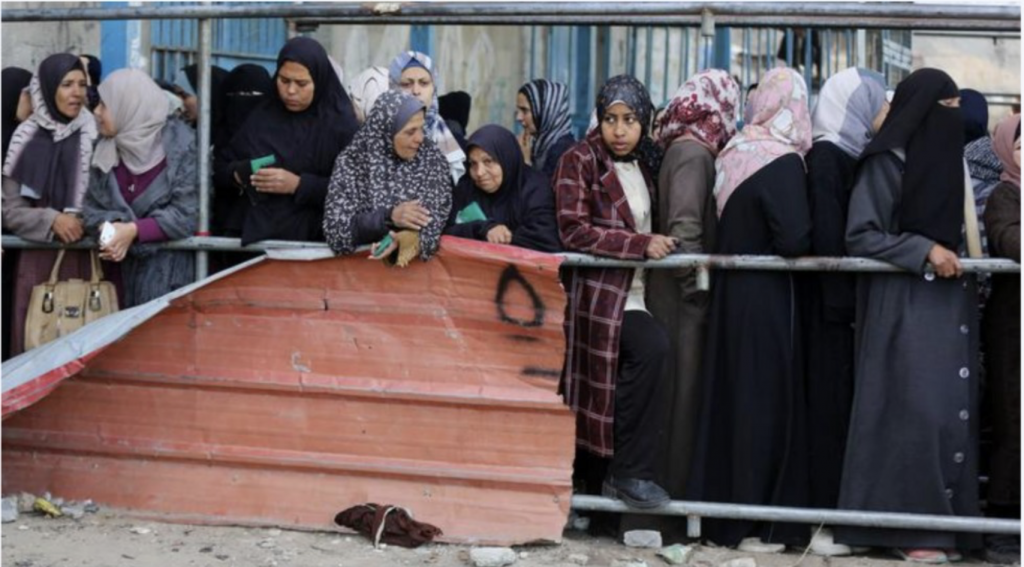
For this week’s Security Sunday, we are exploring the key events over the past week.
Tensions rise between Lebanon and Syria amid cross-border attacks and the strain of the refugee crisis. Lebanon’s fragile economy worsens as both countries face mounting challenges. The international community calls for restraint, urging both nations to address their issues diplomatically. This growing instability threatens to spill over, with the potential for even deeper regional repercussions.
A ceasefire agreement between Israel and Hamas brings cautious hope after 15 months of conflict. With 90% of the population displaced and widespread destruction, hope to return and rebuild. The deal also includes the return of hostages to Israel. Humanitarian aid is set to increase, but healthcare and mental health challenges remain.
Thousands of people marched in Washington DC, before Donald Trump’s second inauguration. While the march was a fraction of the size of 2017’s Women’s March, it highlighted key issues like women’s rights, LGBTQ+ rights, immigration, and climate change. Activists emphasize long-term community involvement as the real goal, not just protest. Trump’s return to power has seen a shift in public sentiment, with many business leaders now being more supportive than before. Follow these
Links to read more:
1. Lebanon & Syria
2. Ceasefire
3. Trump’s inauguration
Sunday, November 11th, 2024

This week’s Security Sunday illuminates Colombia’s current domestic economic and security concerns.
After President Petro’s election, domestic policies in Colombia are changing. Petro is dedicated to his unwavering pursuit of ‘Total Peace,’ confronting long-standing issues such as criminal organisations, energy regulations, military relations, and internal governmental matters. However, this pursuit has limits, primarily due to these problems’ historically embedded influence in Colombia’s domestic affairs.
“Under this policy, the government pursued simultaneous negotiations with illegal armed organizations while seeking a quick reduction in violence. The government has opened negotiations with close to ten criminal organizations, including the National Liberation Army (ELN), Segunda Marquetalia, Revolutionary Armed Forces of Colombia (FARC) dissidents, and other drug gangs.”– Kimberly Breier and Antonio Leal Holguín, Center for Strategic & International Studies
Sunday, November 3th, 2024
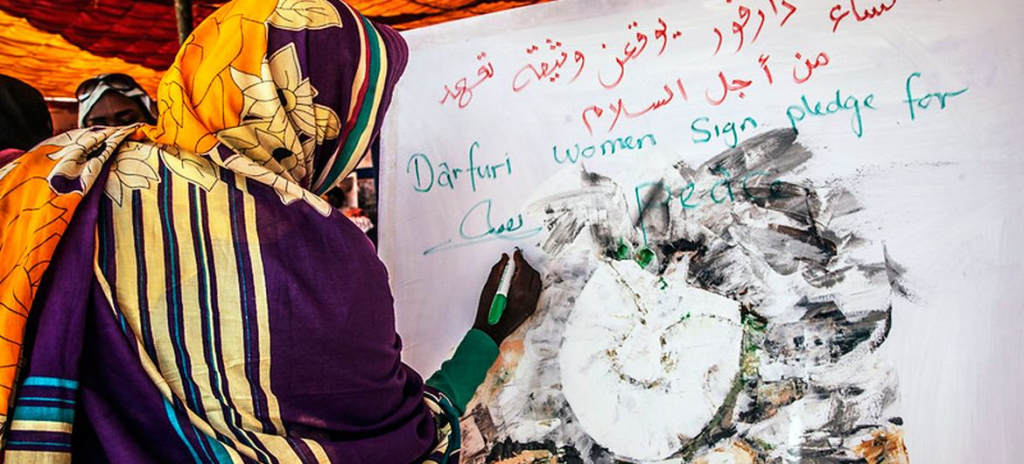
This week’s Security Sunday looks at the current push for Women’s equal participation in peace discussions and movements. The UN has launched the ‘Common Pledge’ to boost women’s participation in peace processes. At the Security Council open debate, referring to the current challenges in Gaza, Afghanistan, and Sudan, UN representatives emphasised the urgent need to support women in conflict zones and not allow backlash against gender equality movements.
“The weaponization of misogyny for political gain is extracting a price we will pay for generations. That price will be more conflicts, longer conflicts, more devastating conflicts.”– Vibhu Mishra, UN News
Sunday, October 26th, 2024

This week’s Security Sunday is about the political strains that have emerged between Canada and the US regarding their defence relations, as well as the latter’s future in light of the elections in the coming year.
“While the direct relationship between the U.S. and Canadian militaries remains close, political strains have emerged lately between Ottawa and Washington over a perceived lack of political commitment on the Canadian side to sustain and improve defense capability in the face of seismic shifts in the geostrategic landscape. The United States and Canada will both face elections in the coming year, creating challenges and opportunities in setting expectations in defense spending.” – Vincent Rigby, CSIS
Sunday, October 13th, 2024

This week’s Security Sunday discusses the ‘New Global Peace Plan’, which, given the current instability of global affairs, has become a prominent agenda item for re-evaluation.
“The New Agenda stresses that conflicts do not emerge out of thin air: root causes include poverty; unequal societies that leave many disenfranchised and frustrated; development gaps between regions and countries; and the climate crisis. Tackling these issues is at the heart of preventive diplomacy, which involves talking to parties involved in disputes before conflicts arise.” – UN NEWS
Sunday, October 6th, 2024

This week’s Security Sunday article examines and discusses the risk of an all-out war between Israel, Hezbollah, and Iran.
“Although most strikes by both sides have been within a relatively narrow area along the Israel-Lebanon border, the nature of the limited war between Hezbollah, Iran, and Israel is rapidly changing […] Despite the growing risk, an all-out war is not inevitable. Israeli attacks might successfully coerce Hezbollah to accept a ceasefire and move forces away from the border, or they might significantly weaken Hezbollah’s capabilities to strike Israel. But if negotiations fail to establish a buffer zone along the Israel-Lebanon border, there is a heightened possibility of all-out war” – Center for Strategic & International Studies
Sunday, September 29th, 2024

This week’s Security Sunday discusses the call made by African leaders at the UN General Assembly for a more inclusive and representative Security Council.
“The leaders emphasized the urgent need for the 15-member Security Council to reflect contemporary realities, arguing that its current structure is antiquated and ill-suited to address the complex challenges of the modern world. They pointed out that the failure to incorporate a broader spectrum of voices within the Council compromises the UN’s legitimacy and effectiveness, particularly in responding to Africa’s pressing peace and security challenges.” – UN NEWS
Sunday, September 22nd, 2024

This week’s Security Sunday examines the diplomatic relationship between the UN and Afghanistan, reviewing the UN’s stance on forbidding women from the special commission meetings this June.
“On 30 June, the UN Secretary-General is hosting the Doha III by inviting all—including member states Special Envoys, international organisations, and the Taliban government—except women and civil society representatives from Afghanistan. Like Doha I and Doha II, the Taliban specifically requested that no women attend, and the UN has accepted this prerequisite.” Australian Institute of International Affairs
Sunday, September 8th, 2024
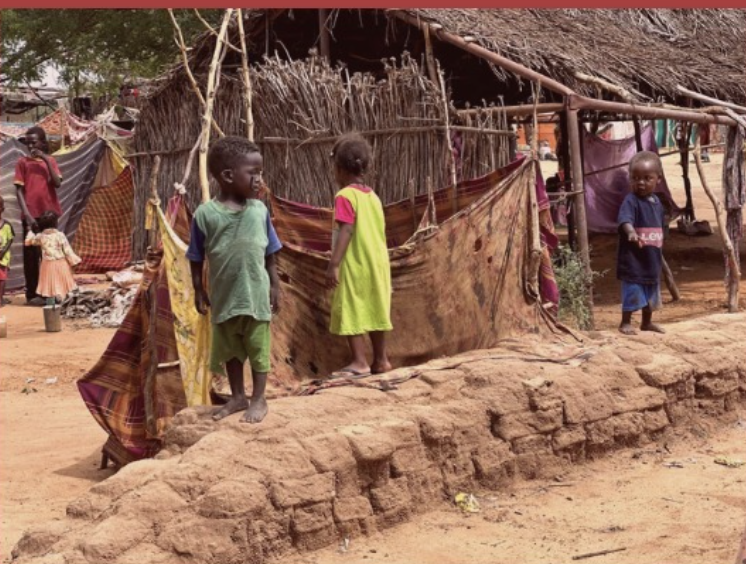
This Week’s Security Sunday Addresses Sudan Peace Talks : Switzerland is hosting crucial negotiations to address the ongoing conflict in Sudan. With intense discussions underway, the international community hopes for a breakthrough that could pave the way for lasting peace and stability in the region.
“UN officials warned this week that Sudan is at a ‘catastrophic breaking point’ and that there will be tens of thousands of preventable deaths from hunger, disease, floods and violence in the coming months without a larger global response.” CBC News
Sunday, August 11th, 2024
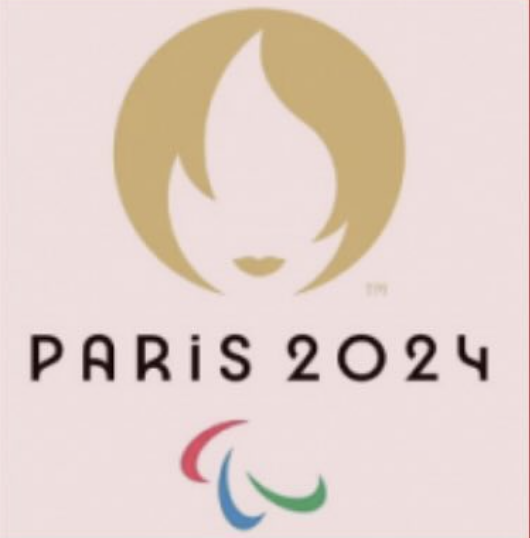
With the Paris 2024 Olympics coming to a close, we bring you a summer edition of our Security Sundays. This article covers the array of security concerns Paris dealt with before the opening of the olympics.
“U.S. and European officials say Russia is conducting a “brazen” sabotage campaign across Europe that seeks to damage railways, military bases and other sites used to supply arms to Kyiv in Order to undermine Western support for Ukraine.” NBC News
Article Topics
Browse through our different categories:
